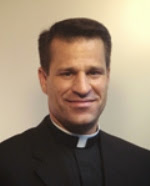Time Magazine has named Pope Francis its "Person of the Year." Of course, like Benedict and John Paul before him, he does not aspire to celebrity. Still, this recognition is an occasion to be happy because it ultimately is about more than Jorge Bergoglio the person - it shows that, as secularized as our culture has become, still there is a hunger for the spiritual. Even if the story below from Time gets some things wrong about the papacy, the Church, and Catholicism in general (and unfortunately uses what should be a moment of praise to, yet again, take unfair and mean-spirited slaps at Popes Benedict and John Paul), the award itself is nevertheless heartening and can be understood another step in that continuing journey of the secular in dialogue with faith.
Pope Francis, The People’s Pope
Time Magazine
December 11, 2013
Pope Francis, The People’s Pope
Time Magazine
December 11, 2013
On the edge of Buenos Aires is a nothing little street called Pasaje C, a shot of dried mud leading into a slum from what passes for a main road, the garbage - strewn Mariano Acosta. There is a church, the Immaculate Virgin, toward the end of the pasaje — Spanish for passage — where, on one occasion, the local priest and a number of frightened residents took refuge deep in the sanctuary when rival drug gangs opened fire. . . .To read more, go to: TIME's Person of the Year 2013 Pope Francis, The People's Pope
The word asesino — murderer — is scrawled in spray-paint on the sooty wall of a burned-out house, which was torched just days before in retaliation for yet another shooting. Packs of dogs sprawl beneath wrecked cars. Children wander heedless of traffic, because nothing can gather speed on these jagged roads. But even Pasaje C can lead to Rome.
As Cardinal and Archbishop of Buenos Aires, a metropolis of some 13.5 million souls, Jorge Mario Bergoglio made room in his schedule every year for a pastoral visit to this place of squalor and sorrow. . . . On other days, there were other journeys to barrios throughout the city — so many in need of so much, but none too poor or too filthy for a visit from this itinerant prince of the church. Reza por mí, he asked almost everyone he met. Pray for me.
When, on March 13, Bergoglio inherited the throne of St. Peter—keeper of the keys to the kingdom of heaven—he made the same request of the world. Pray for me. . . .












